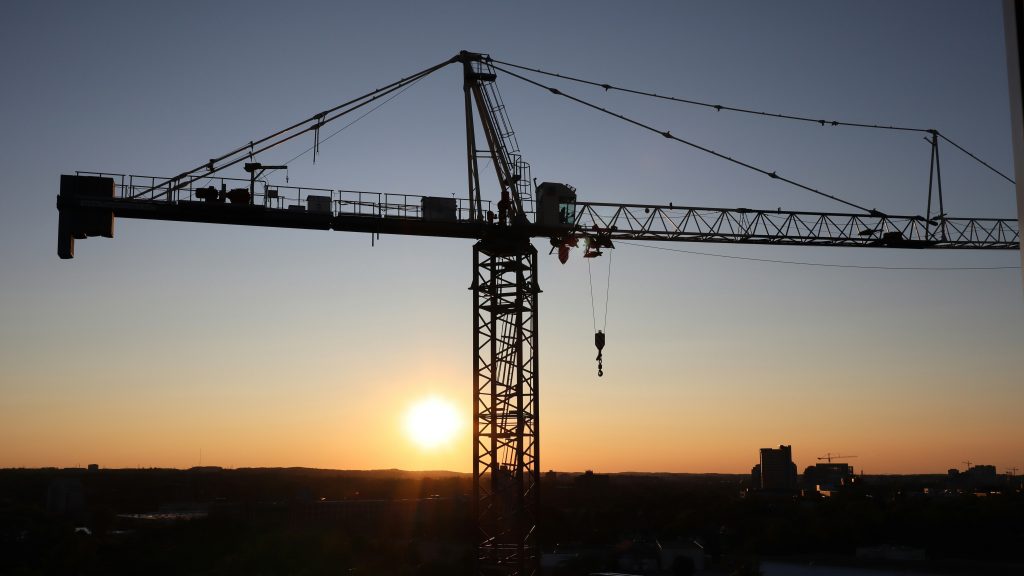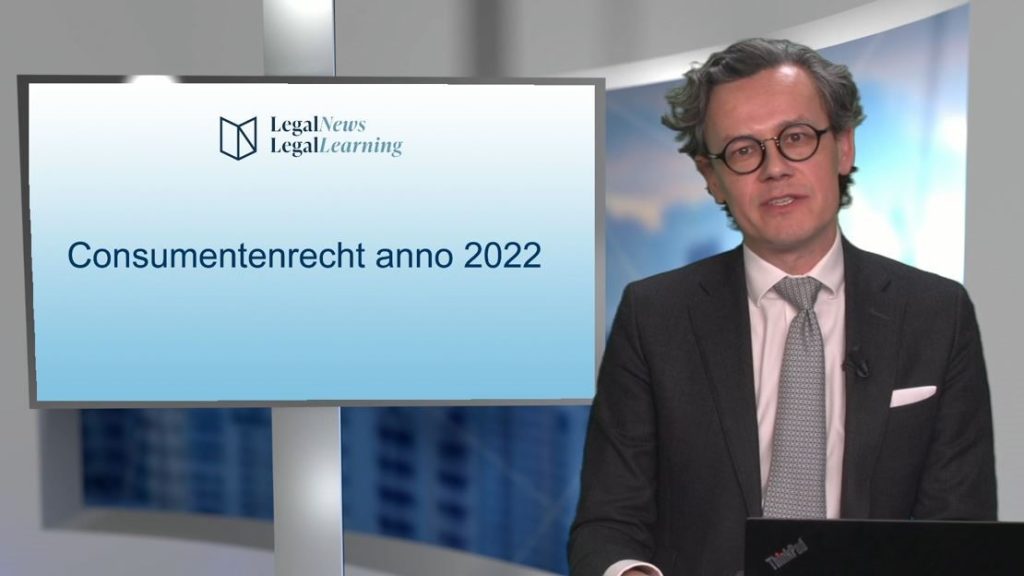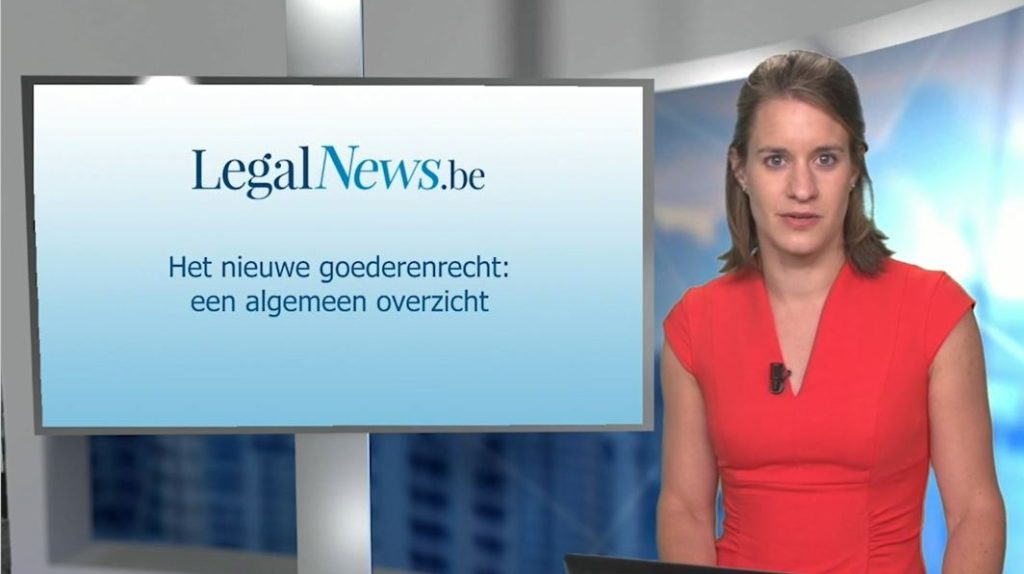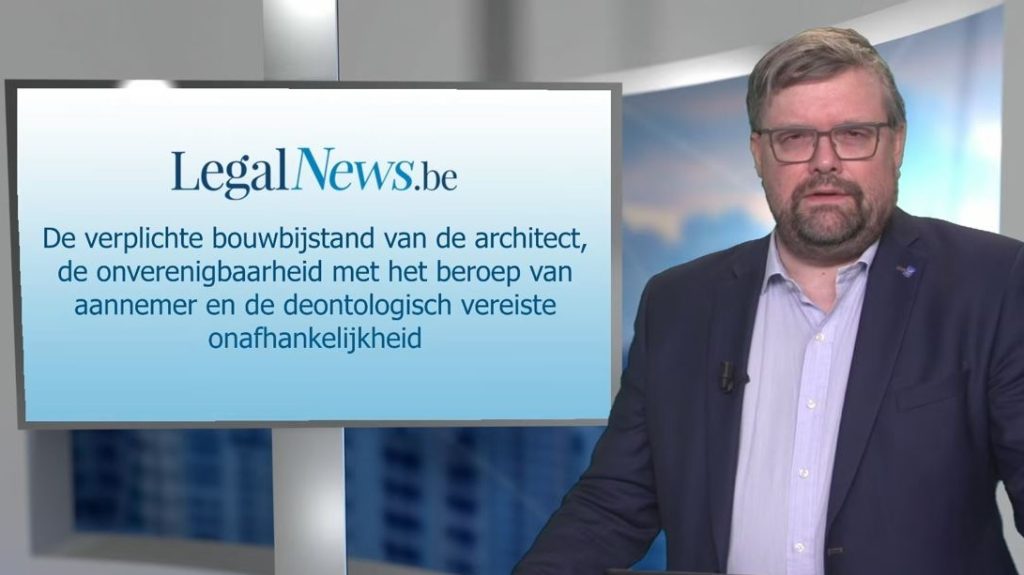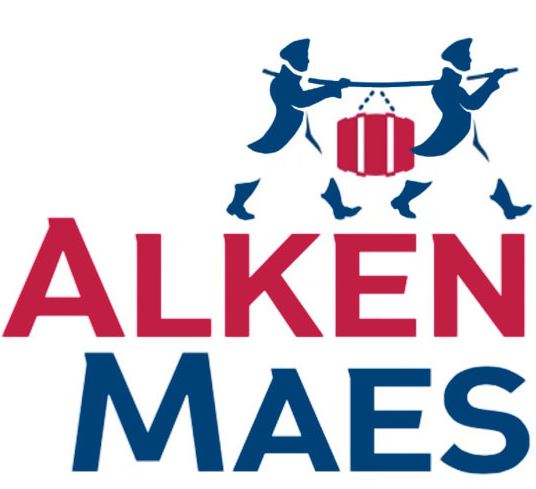Vastgoedtransacties
door én met administratieve overheden:
overheidsopdracht of uitgesloten vastgoeddienst?
Dhr. Constant De Koninck (Rekenhof)
Webinar op donderdag 13 juni 2024
Recente wetgevende ontwikkelingen
met impact op de bouwsector
Prof. dr. Kristof Uytterhoeven (Caluwaerts Uytterhoeven)
Webinar op dinsdag 27 augustus 2024
Aansprakelijkheid van hulppersonen
in en buiten de contractketting.
Een analyse in het licht van Boek 6
Prof. dr. Ignace Claeys en mr. Camille Desmet (Eubelius)
Webinar op vrijdag 30 augustus 2024
Consumentenbescherming bij de verwerving
van financiële diensten: de laatste ontwikkelingen (optioneel met handboek)
Prof. dr. Reinhard Steennot (UGent)
Webinar op donderdag 30 mei 2024
Aandachtspunten bij het opstellen
en analyseren van ICT-contracten
Mr. Lynn Pype en mr. Liesa Boghaert (Timelex)
Webinar op donderdag 16 mei 2024
Handelspraktijken en consumentenbescherming:
recente topics onder de loep
Dr. Stijn Claeys en mr. Arne Baert (Racine)
Webinar op vrijdag 30 augustus 2024
Negotiating a commercial lease agreement / Tips & Tricks (Cresco)
Authors: Pauline Devos and Tessa Gijbels (Cresco)
Date of publication: 21/12/2017
When you decide to lease a commercial space for your business, the aspects to take into consideration go way beyond the lease period, location of the property and rental charges.
Far too often, important aspects of commercial leases are left unmanaged. These contractual voids can have significant (financial) consequences for both parties. Therefore, it is important for both the lessee and the lessor to be aware of some key issues before entering into negotiations.
First, lessors try to restrict the maintenance and repair works under their responsibility by referring to article 605 and 606 of the Civil Code, stating that only the so-called “major repairs” are to be executed by the lessor.
However, it should be emphasized that article 605 and article 606 should not be interpreted strictly, since the lessor’s responsibility under these articles is quite limited. It is much better to insert that these articles must be interpreted in accordance with the legal doctrine and jurisdiction, as this will significantly increase the lessor’s obligations.
Lessees, on the other side, may want to include a reference to article 1754 of the Civil Code which states that the lessee is responsible for minor repairs.
Since this article also leaves room for interpretation as to determine which minor repairs actually need to be executed by the lessee, it is recommended to include a clear and exhaustive list of all maintenance and repair works which are to be executed by the lessee.
Secondly, parties should draft an inventory of fixtures at the start of the lease agreement in order to establish whether (at the end of the lease agreement) the lessee is responsible for any damages to the leased premises. Parties may draft the inventory themselves or appoint an independent expert. In any case, we recommend documenting this inventory of fixtures with photos of the leased premises.
If no inventory of fixtures was drafted at the beginning of the lease agreement, the lessor will bear the burden of proof to establish that possible damages were caused by the lessee.
Thirdly, leased premises sometimes require urgent repair works during the lease period. In theory, the lessee has to tolerate these urgent repairs executed by the lessor, even if this means that the lessee has to shut down his business for a certain period of time. This may lead to a considerable loss of income.
The obligation for the lessee to tolerate these repairs is not absolute. The Civil Code provides that the lessee is entitled to a pro rata reduction of the rent (or in some cases even to the termination of the lease agreement) if these repair works exceed forty (40) days. Parties can deviate from this general rule and stipulate a shorter or longer period of time within which the urgent repair need to be finished. Alternatively, the lessee may demand a compensation for loss of income from the lessor.
Lastly, parties need to be particularly careful with one-sided contracts or templates written by sector federations (e.g. lessor or lessee associations). These contracts are usually strongly in favour of one of both parties depending on which association has drafted the agreement and need to be subject to a critical review.
For specific questions, you can reach out to the authors of this article or to your regular contact person at Cresco.
» Bekijk alle artikels: Bouw & Vastgoed, Handel & Consument



